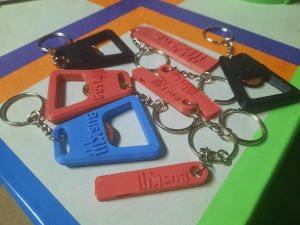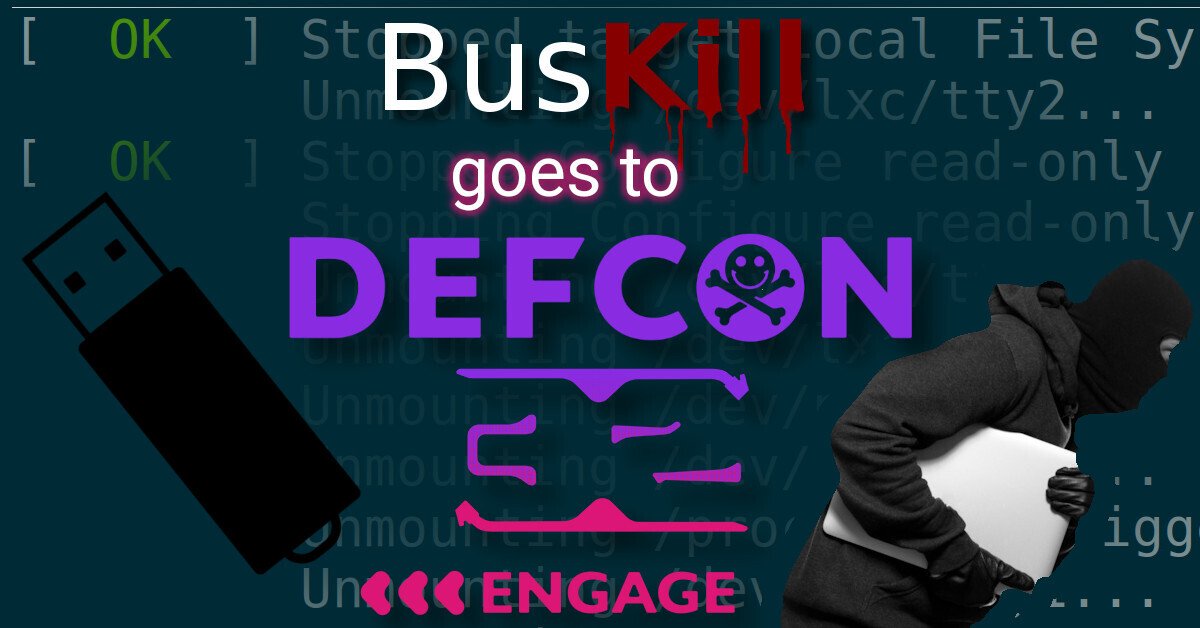We're happy to announce that BusKill is presenting at DEF CON 32.
What: Open Hardware Design for BusKill Cord
When: 2024-08-10 12:00 - 13:45
Where: W303 – Third Floor – LVCC West Hall
via @Goldfishlaser@lemmy.ml
What is BusKill?
BusKill is a laptop kill-cord. It's a USB cable with a magnetic breakaway that you attach to your body and connect to your computer.
If the connection between you to your computer is severed, then your device will lock, shutdown, or shred its encryption keys -- thus keeping your encrypted data safe from thieves that steal your device.
What is DEF CON?
DEF CON is a yearly hacker conference in Las Vegas, USA.
What is BusKill presenting at DEF CON?
I (goldfishlaser) will be presenting Open Hardware Design for BusKill Cord in a Demo Lab at DEF CON 32.
What: Open Hardware Design for BusKill Cord
When: Sat Aug 10 12PM – 1:45PM
Where: W303 – Third Floor – LVCC West Hall
Who: Melanie Allen (goldfishlaser)
More info
Talk Description
BusKill is a Dead Man Switch triggered when a magnetic breakaway is tripped, severing a USB connection. I’ve written OpenSCAD code that creates a 3D printable file for plastic parts needed to create the magnetic breakaway.
Should anyone need to adjust this design for variations of components, the code is parameterized allowing for easy customization. To assemble a BusKill Dead Man Switch cord you will need:
- a usb-a extension cord,
- a usb hard drive capable of being attached to a carabiner,
- a carabiner,
- the plastic pieces in this file,
- a usb female port,
- a usb male,
- 4 magnets,
- 4 pogo pins,
- 4 pogo receptors,
- wire,
- 8 screws,
- and BusKill software.
 |
| Golden DIY BusKill Print |
Full BOM, glossary, and assembly instructions are included in the github repository.
The room holds approx. 70 attendees seated. I’ll be delivering 3 x 30 min presentations – with some tailoring to what sort of audience I get each time.
Meet Me @ DEF CON
If you'd like to find me and chat, I'm also planning to attend:
- ATL Meetup (DCG Atlanta Friday: 16:00 – 19:00 | 236),
- Hacker Kareoke (Friday and Sat 20:00-21:00 | 222),
- Goth Night (Friday: 21:00 – 02:00 | 322-324),
- QueerCon Mixer (Saturday: 16:00-18:00 | Chillout 2),
- EFF Trivia (Saturday: 17:30-21:30 | 307-308), and
- Jack Rysider’s Masquerade (Saturday: 21:00 – 01:00 | 325-327)
I hope to print many fun trinkets for my new friends, including some BusKill keychains.
 |
| Come to my presentation @ DEF CON for some free BusKill swag |
By attending DEF CON, I hope to make connections and find collaborators. I hope during the demo labs to find people who will bring fresh ideas to the project to make it more effective.




